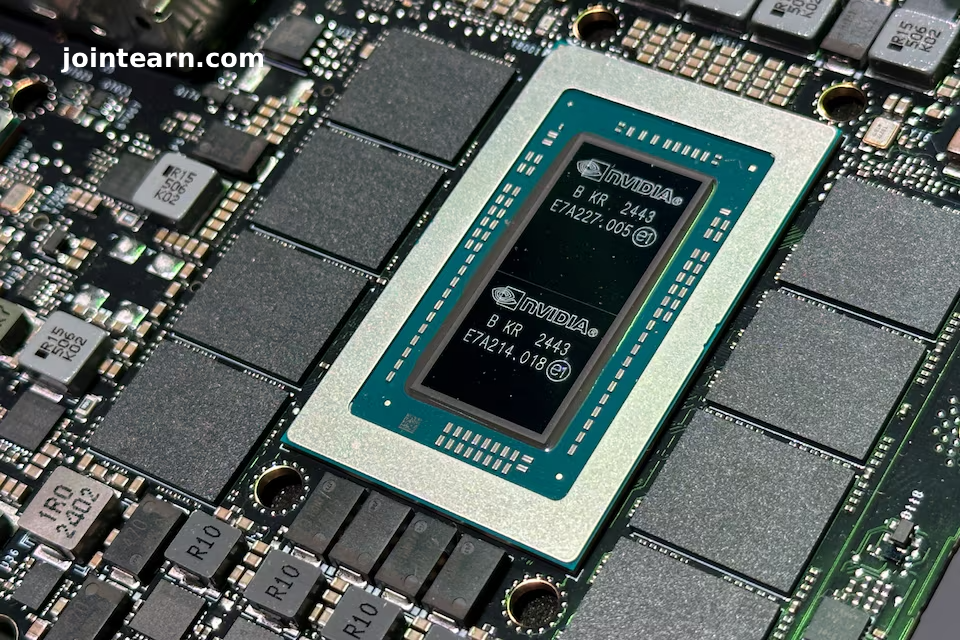
In a move that could reshape the global artificial intelligence (AI) and semiconductor landscape, former U.S. President Donald Trump announced that the United States will reserve Nvidia’s most advanced AI chips exclusively for domestic companies, effectively barring China and potentially other countries from accessing the cutting-edge technology.
During a taped interview aired on CBS’ “60 Minutes” and in statements to reporters aboard Air Force One, Trump emphasized that only American companies would have access to Nvidia’s flagship Blackwell AI chips, underscoring the administration’s commitment to maintaining U.S. technological superiority.
Nvidia’s Blackwell Chips: The Crown Jewel of AI Computing
Nvidia, the world’s most valuable publicly traded company by market capitalization, has been at the forefront of AI hardware innovation. Its GB10 Grace Blackwell Superchip, recently displayed at the company’s GTC conference in San Jose, California, represents one of the most powerful AI computing solutions available globally.
Trump stated unequivocally: “The most advanced, we will not let anybody have them other than the United States. We don’t give [the Blackwell] chip to other people.” These remarks signal a potential tightening of restrictions around high-end AI chips, surpassing prior U.S. export limitations.
The Blackwell chips are designed for high-performance AI applications, including advanced machine learning, large-scale data processing, and potentially sensitive defense technologies. Limiting their export could have major implications for international AI research and development, particularly in China, which has been aggressively investing in AI technology as part of its national strategy.
U.S. AI Strategy and Global Competition
In July, the Trump administration unveiled a new artificial intelligence blueprint aimed at strengthening America’s technological edge. The plan sought to relax certain environmental regulations while expanding AI exports to allied nations, aiming to maintain the U.S.’s leadership in the rapidly evolving AI sector.
Last Friday, Nvidia announced it would supply over 260,000 Blackwell AI chips to South Korea, including major corporations like Samsung Electronics, signaling the United States’ willingness to share advanced technology with strategic allies while keeping China at a distance.
The China Question and Controversy
Questions have lingered about whether a scaled-down version of the Blackwell chip could eventually be sold to China. Trump clarified in the 60 Minutes interview that Chinese companies would not receive the top-tier Blackwell chips. However, he left open the possibility that less advanced versions could be made available: “We will let them deal with Nvidia but not in terms of the most advanced,” he said.
This nuanced stance has drawn criticism from U.S. lawmakers concerned about China’s AI and military development. Republican Congressman John Moolenaar, chair of the House Select Committee on China, compared selling even a limited version of the chips to providing “Iran weapons-grade uranium.”
Trump had previously indicated he might discuss the issue with Chinese President Xi Jinping during their recent summit in South Korea, but ultimately the topic was not raised. Nvidia CEO Jensen Huang noted that the company has not pursued U.S. export licenses for China due to Beijing’s current restrictions on Nvidia’s operations. “They’ve made it very clear that they don’t want Nvidia to be there right now,” Huang said, adding that access to the Chinese market is still crucial for funding U.S.-based research and development.
Implications for the AI Industry
Restricting access to Nvidia’s most advanced AI chips reinforces the United States’ position as a global leader in artificial intelligence technology. However, the move also adds uncertainty to international AI collaboration and semiconductor supply chains. With China heavily investing in AI for both commercial and military applications, limiting access to high-performance chips may slow their progress but could also heighten geopolitical tensions.
For U.S. companies, reserving the Blackwell chips domestically ensures that American firms remain at the forefront of AI research, supporting national security priorities and technological competitiveness.


Leave a Reply